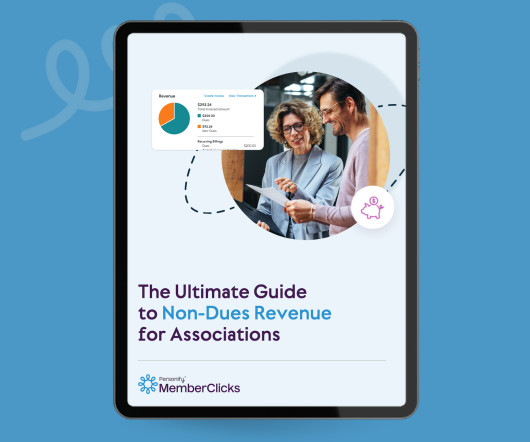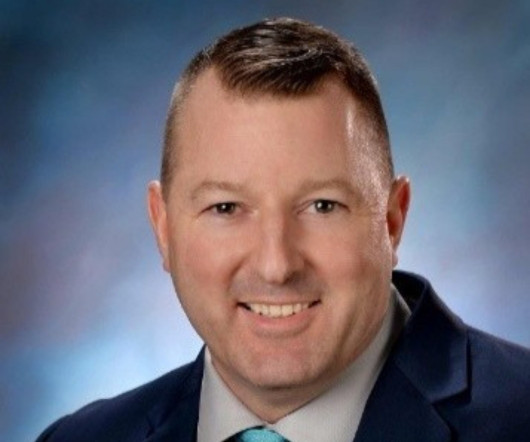Wild Apricot Blog : AddThis for Simple Social Bookmarking
Wild Apricot
JANUARY 31, 2008

Idea Architects
JANUARY 8, 2008
One of the great things about blogging is being able to share your thoughts and hear those of others. One of the challenges is that for a variety of reasons, people often feel the need to post their comments anonymously. This post generated some thoughtful reactions from one such anonymous commentator who posed several questions I though were worth responding to.
This site is protected by reCAPTCHA and the Google Privacy Policy and Terms of Service apply.

Observations on Association Management
JANUARY 27, 2008
skip to main | skip to sidebar. Sunday, January 27, 2008. Small Associations Can Perform "Big". Small associations often lament the fact that they do not have the resources to perform as well as their larger brethren. While it is indeed true that larger associations with big budgets and large numbers of dedicated staff members may have an easier time of "performing" than smaller, leaner organizations, small associations can behave like the big guys.

CAE Blog
JANUARY 29, 2008
Beyond some of their really cool fringe benefits, like afternoon tea, I think two factors are the biggest contributors. One, Google’s famous 70/20/10 work schedules. A total of 70% is spent working on your normal projects. Another 20% is devoted to related projects. The remaining 10% is yours to work on anything you want. A lot of autonomy and belief in the power of employees to do great things. .

Speaker: Gareth Webb & Phill Selley, Founding Partners at Intouch Business
For many nonprofit organizations and NGOs, managing grants with spreadsheets and manual processes feels familiar—but is it holding your organization back? As funding requirements become more complex and stakeholder expectations for transparency grow, relying on outdated methods can lead to inefficiencies, missed opportunities, and compliance risks. Join Gareth Webb and Phil Selley in this new session as they walk through the grant lifecycle, highlighting key operational and financial challenges

Wild Apricot
JANUARY 10, 2008
Association Universe brings together the best content for association members and organizers from the widest variety of industry thought leaders.

Wild Apricot
JANUARY 25, 2008

Advertisement
Struggling to generate revenue beyond membership dues? You're not alone. Our free guide, The Ultimate Guide to Non-Dues Revenue for Associations , offers practical strategies to help your organization boost financial health. Inside, you'll explore creative ways to generate income, including: Educational offerings tailored to your audience Event-based revenue opportunities Job boards that drive engagement and income Corporate sponsorship ideas A checklist to evaluate and strengthen your current a

Wild Apricot
JANUARY 3, 2008

Idea Architects
JANUARY 7, 2008
Don't forget the key to New Year's Resolutions. Success results from being resolute with your actions, not crafting language for good intentions.

Idea Architects
JANUARY 2, 2008
Each year, dozens of the world's leading thinkers answer a provocative question on the EDGE Foundation web site. I strongly urge you to take a look at some of the really insightful responses to the questions, "What have you changed your mind about? Why? And spend a few minutes thinking about (ans answering) the questions yourself.

Idea Architects
JANUARY 2, 2008
This is the picture you'll find at Association Trends and this is the description of the article (subscription required): Some of the top assn executives identify the trends & issues of the year: leadership - both staff and volunteer, governance, federal scrutiny, lobbying, climate change, networking opportunities and an assn's relevance No offense to any of the accomplished individuals, each of whom I know has interesting insights to share.

Speaker: Dave Sackett
Traditional budgeting and forecasting methods can no longer keep pace with today’s rapidly evolving business environment. Static budgets, rigid annual forecasts, and outdated financial models limit an organization’s ability to adapt to market shifts and economic uncertainty. To stay ahead, finance leaders must leverage a future-forward approach—one that leverages real-time data, predictive analytics, and continuous planning to drive smarter financial decisions.

Observations on Association Management
JANUARY 4, 2008
skip to main | skip to sidebar. Friday, January 4, 2008. Tough Topics. Politics and religion can be dangerous topics in mixed company. Its hard to know who believes what and what comments might offend people. So, the safest and best route for association executives is to stay away from those topics, right? No. Emphatically , no! Granted, there are some situations in which it is best to avoid both subject areas, but generally speaking, association executives should be leaders in conversations abo

Observations on Association Management
JANUARY 3, 2008
skip to main | skip to sidebar. Thursday, January 3, 2008. Imminent Danger. Organizations that do not take seriously the different preferences of their various constituencies are at risk of becoming irrelevant. When Netflix emerged in 1998, Blockbuster was the king of home video. There was no match, no comparison, no threat. But Netflix changed that.

CAE Blog
JANUARY 27, 2008
Welcome! To learn more about this new blog and myself, click here: [link]. For my first official post I wanted to cover some tips for prospective CAEs. I took my CAE credential examination in December 2007 and learned of successfully passing just this last Friday. Very good news indeed. Without further delay, my tips: Join a Study Group- This is the most important tip I can give.

Observations on Association Management
JANUARY 7, 2008
skip to main | skip to sidebar. Monday, January 7, 2008. Volunteer-Managed Associations: Avoiding Traps. I see one of the most visible results of associations being completely volunteer-managed almost every time I encounter such an association: the organization has, either in the past or at present, lost its standing to do business in the state in which it is incorporated (and, therefore, in other states).

Speaker: Tim Sarrantonio, Director of Corporate Brand
Do you really know your donors? Not just what they give, but who they are? 👥 In this interactive session, we’ll break down how nonprofits can use behavioral indicators (affinity, recency, frequency, and monetary value) to build prospecting segments that go beyond wealth screening and actually align with donor identity. You’ll walk away with practical strategies to move beyond basic demographics and cultivate supporters based on how they already engage with you!
Let's personalize your content